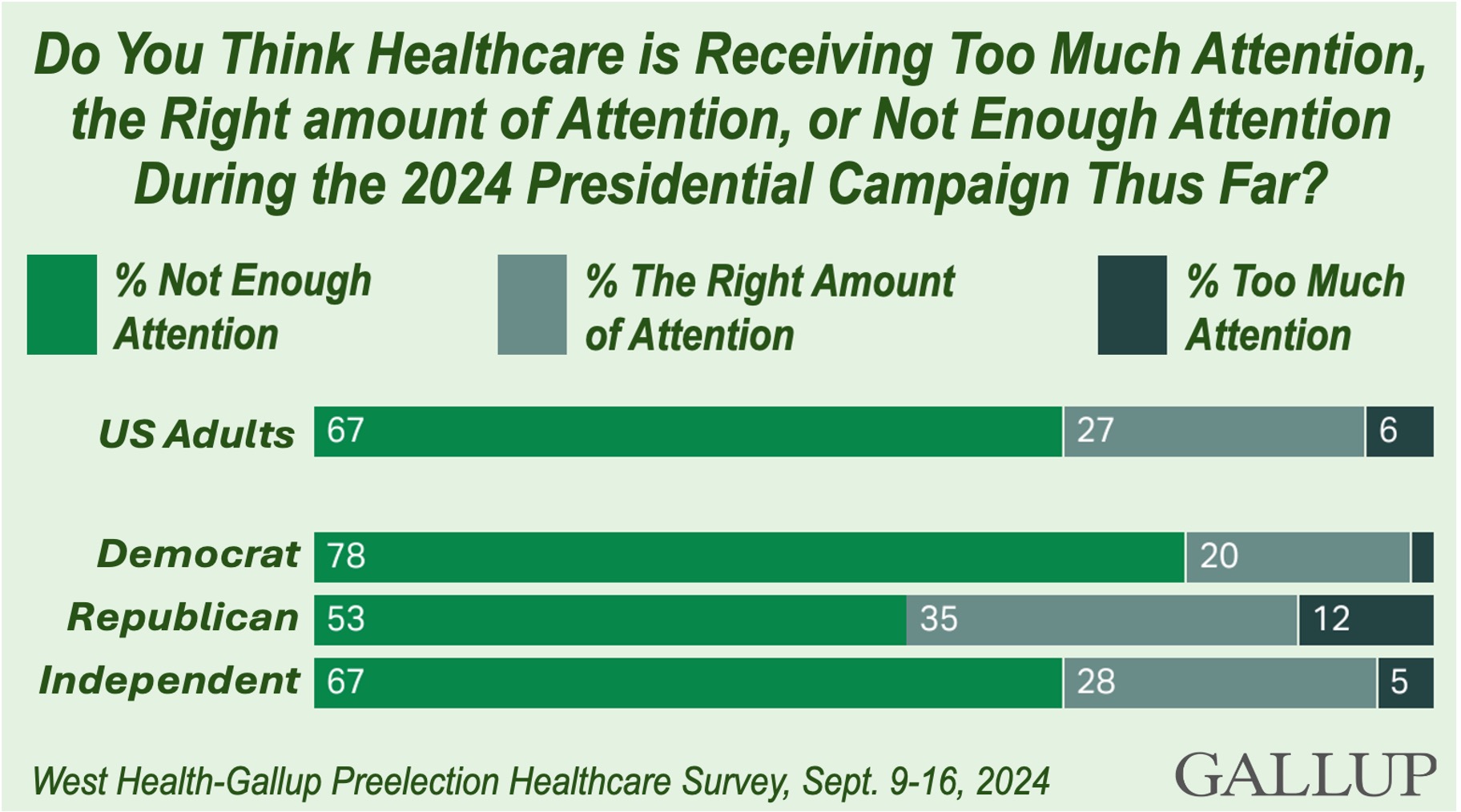As the 2024 U.S. presidential election draws near, a new poll highlights the importance of healthcare costs in voters’ decision-making processes.
According to recent findings from the West Health-Gallup survey, the cost of healthcare, Medicare, and Social Security are central concerns for a significant portion of the American electorate.
While these issues have been crucial in past elections, the data reveals a widespread belief that healthcare is not receiving adequate attention during the current campaign.
Healthcare Costs: A Top Priority for Voters
The survey shows that lowering healthcare costs is a major concern for American voters.
A significant 57% of respondents say a candidate’s stance on healthcare costs is either the most important or among the most important factors influencing their vote.
Prescription drug prices remain another pressing issue, with 47% of Americans identifying it as a priority.

Additionally, access to mental healthcare has emerged as an equally important issue, with 43% of voters highlighting it as a key concern.
Mental healthcare, once a lesser focus, is now viewed almost as crucial as reducing drug costs.
Despite this, the survey reveals a common frustration—many believe healthcare issues are being overlooked during the 2024 election.
Medicare and Social Security: Crucial for Older Voters
For voters aged 65 and above, Medicare and Social Security are among the most significant issues.
According to the survey, 63% of all respondents view a candidate’s stance on protecting Medicare and Social Security as a major determinant in their vote. This concern is especially pronounced among older Americans, a demographic that has historically represented a powerful voting bloc.
Both Democrats and Republicans over the age of 65 place substantial weight on Medicare and Social Security policies.
For example, 94% of older Democrats and 74% of older Republicans consider a candidate’s position on Medicare crucial to their vote.
In contrast, younger voters show less emphasis on these issues but still maintain concerns about healthcare costs and mental health policies.
Growing Demand for Attention on Healthcare
Despite the pressing importance of healthcare-related issues, 67% of Americans feel that healthcare is not receiving enough attention in the presidential campaign.
This sentiment is shared across party lines, though more Democrats (78%) and independents (66%) feel this way compared to Republicans (53%).
The frustration was further reflected in post-debate feedback, with 71% of debate viewers feeling that healthcare issues were inadequately addressed by the candidates.
The divide over healthcare extends to trust in candidates as well. Independents, who are key swing voters, slightly favor Kamala Harris over Donald Trump when it comes to improving access to healthcare and protecting Medicare.
However, about a third of independents express distrust in both candidates on healthcare issues.
Optimism vs. Pessimism: The Future of Healthcare
Americans are divided in their outlook on healthcare improvements over the next five years.
A majority of Democrats (58%) are optimistic about the future of affordable healthcare, while Republicans (70%) and independents (64%) are more pessimistic.
This division reflects broader political differences, with Democrats generally supporting policies aimed at expanding access and reducing costs, while Republicans and independents remain skeptical about the effectiveness of such measures.
Final Thoughts
As healthcare continues to be a crucial issue for American voters, particularly among older populations, it is evident that candidates must address these concerns more comprehensively.
Issues such as healthcare costs, mental health access, Medicare, and Social Security are pivotal in shaping voter preferences.
With many Americans feeling that healthcare has been sidelined in the current election cycle, there is increasing pressure on candidates to clarify their policies and present tangible solutions.
The 2024 election will likely hinge, in part, on how well candidates respond to these pressing healthcare concerns.
